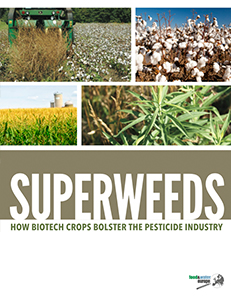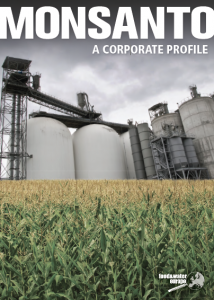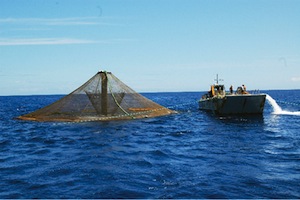Brussels —The National Family Farm Coalition, representing family farmers across the US, has sent a clear warning against any escalation of GM crop reliance on chemicals in Europe.
The message was sent in a letter to every EU Agriculture and Environment Minister as EU officials prepare for a key vote on the authorisation for cultivation of GM maize Pioneer1507, which is both tolerant to the herbicide glufosinate ammonium (sold as Liberty or Basta) and contains the GM Bt gene, making the crop toxic to pests.
Katherine Ozer, executive director of the National Family Farm Coalition in the US warned Ministers:
“Farmers nationwide have experienced extensive (and expensive) losses from 2,4-D and dicamba drift, and crops resistant to them are not yet even deregulated. We are very concerned that escalated reliance on these and similar toxins could lead to the demise of fresh water, tree and wildlife cover, and all non-GM crops – ultimately our environment and food system as we know them.”
Multiple objections to authorising Pioneer 1507 for cultivation in Europe include:
- It is reliant on glufosinate ammonium, an herbicide with considerable health and environmental risks that has not been properly assessed in the EU, making this application premature at best.
- The crop also carries the GM Bt gene, making it toxic to pests. Existing GM Bt crops are already failing in fields in the US, Brazil and India as the target insects develop resistance. The Brazilian Government is now warning that reliance on Bt crops is causing the severe economic damage facing GM farmers. Maharastra State Agriculture Minister Ramakrishna Vikhe-Patil said of Bt cotton: “In the long run, we want to eradicate it because it is water-intensive and utterly unsuited to our conditions since 82% of the 4.2 million hectares of Bt cotton cultivation is done in drought-prone areas…[Agriculture researchers and universities] did not do enough to alert the Government to the potential dangers of Bt cotton.”
- EFSA admits Pioneer 1507 will harm non-target insects, like butterflies. There has been no assessment of its impact on other pollinators, which already face a host of threats endangering our future food production.
- GM agriculture is not wanted by EU citizens and is not necessary, as most
recently demonstrated by Heinemann et al: “Despite the claims that GM might be needed to feed the world, we found no yield benefit when the United States was compared to W. Europe, other economically developed countries of the same latitude which do not grow GM crops. We found no benefit from the traits either.”
Food & Water Europe’s EU Food Policy Advisor Eve Mitchell commented:
“The science shows non-GM is the future of food and farming. The courts told the Commission to process this application, but it has not been sufficiently scrutinised so we do not know if it is safe, so there is every reason for Member States to reject it.
“We want a healthy, productive future for European agriculture, and we can clearly see that countries that rushed to jump on the GM bandwagon are now suffering as the technology fails. European Ministers need to think very carefully about the warnings from farmers in the US and the Governments of both Brazil and Maharashtra – growing GM causes worse problems than it solves.”
Only two other GM crops are permitted in EU fields. One is the industrial starch potato Amflora, which was approved by the Commission amid considerable controversy and has never recovered from the debacle in its first year of cultivation when another, unauthorised GM potato contaminated the seed stock and much of the crop had to be destroyed. The authorisation for Amflora was annulled on 13 December by the EU General Court, which found that the Commission had not properly followed necessary procedures when it approved the crop. The other GM crop grown in the EU is the controversial MON810 Bt maize, which is banned in several EU countries and is the subject of ongoing scientific controversy over its negative environmental impacts.
For further information contact:
Eve Mitchell, EU Food Policy Advisor, Food & Water Europe +44 (0)1381 610 740
Katherine Ozer, Executive Director, National Family Farm Coalition (US) +1 202 543 5675
National Family Farm Coalition unites and strengthens the voices and actions of its diverse grassroots members to demand viable livelihoods for family farmers, safe and healthy food for everyone, and economically and environmentally sound rural communities.





 Offshore aquaculture is factory fish farming of the sea, growing fish in huge, often over-crowded cages out in ocean waters. It can be problematic for both the environment and the economy. The waste – fecal matter, uneaten food, and any chemicals or drugs used in the operation – flows directly into the ocean, and the result could be long-term damage to the seafloor. Despite its negative impacts, the following groups push for, or would profit from, factory fish farming in the United States and Europe.
Offshore aquaculture is factory fish farming of the sea, growing fish in huge, often over-crowded cages out in ocean waters. It can be problematic for both the environment and the economy. The waste – fecal matter, uneaten food, and any chemicals or drugs used in the operation – flows directly into the ocean, and the result could be long-term damage to the seafloor. Despite its negative impacts, the following groups push for, or would profit from, factory fish farming in the United States and Europe.